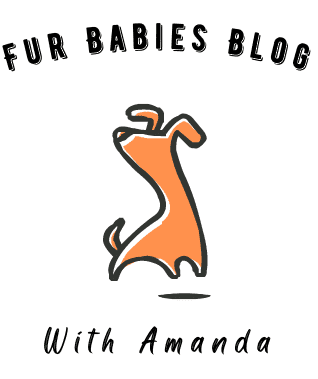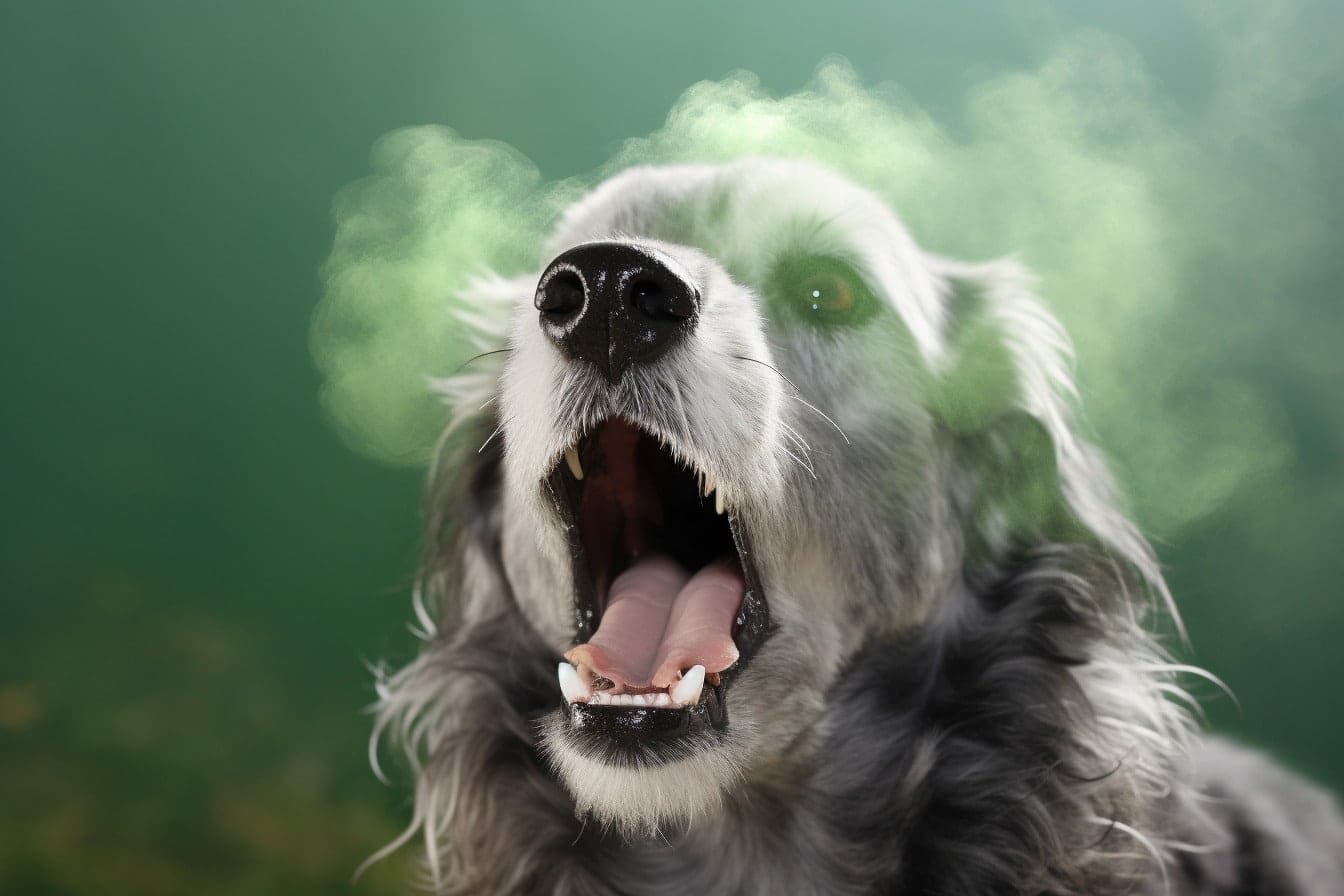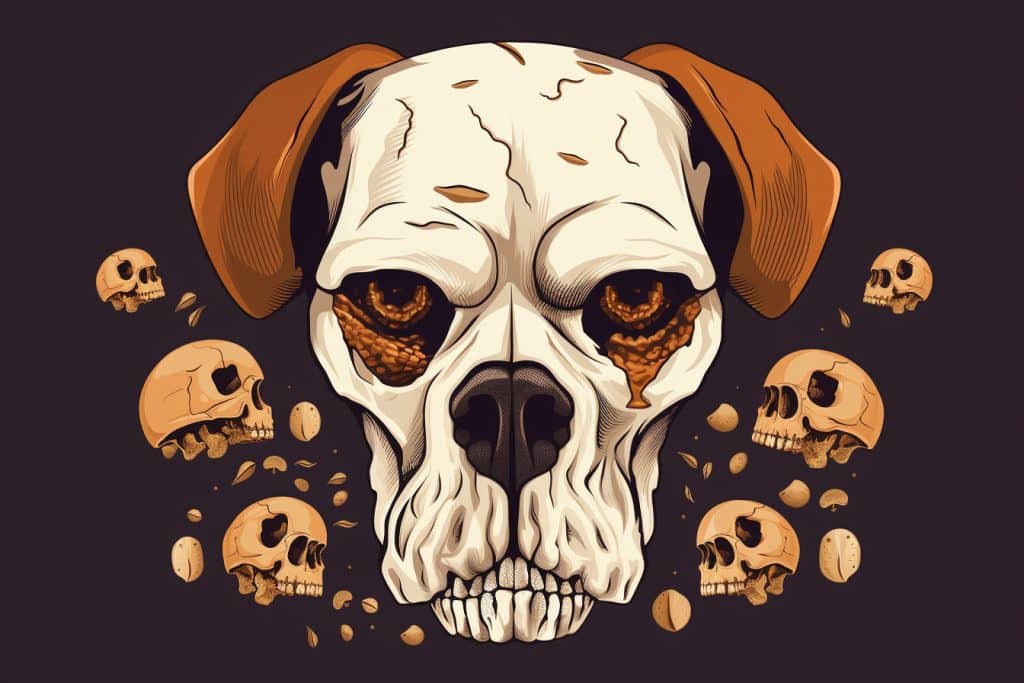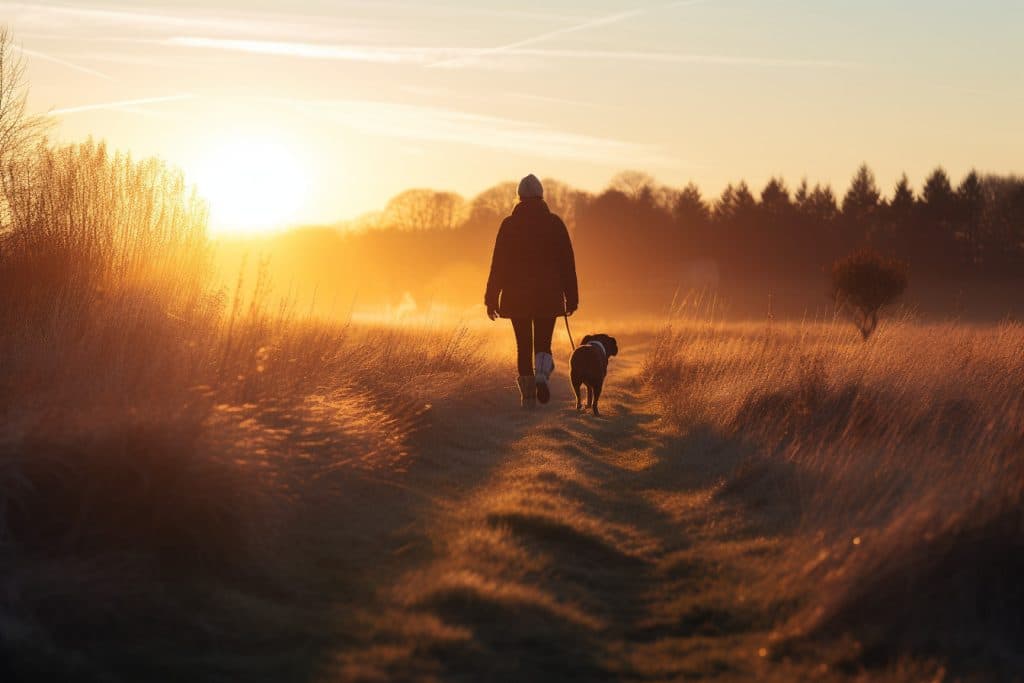Senior Dog Bad Breath Issues
As a loving pet owner, it's always been important for me to ensure my best friend is happy and healthy. One issue I've encountered is senior dog bad breath – something that many of us may have noticed but thought little of.
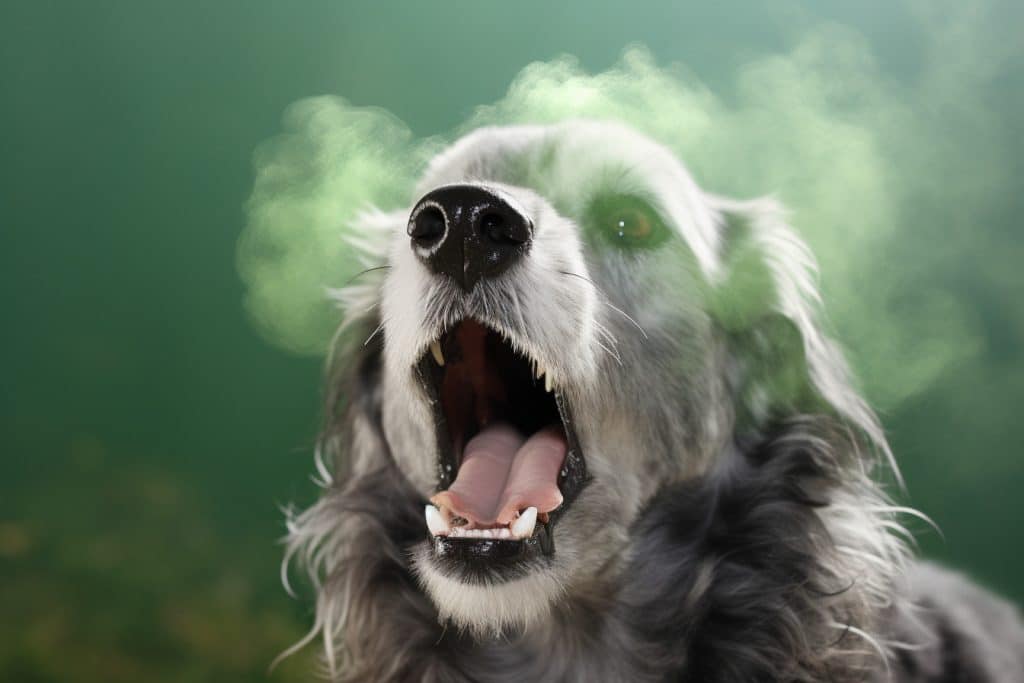
However, senior dog bad breath can be more than just an unpleasant smell; it could be indicative of underlying health issues that require our attention and care. In this article, we'll delve into the causes and potential health problems related to senior dog bad breath, as well as exploring professional diagnosis, treatment options, and ways we can prevent or alleviate this issue at home.
By being proactive with our pets' dental care routine and seeking professional advice when needed, we're actively serving those who bring so much joy to our lives. Read on to learn more about how you can make a difference in your senior dog's oral health journey!
Understanding Bad Breath in Senior Dogs
You might be wondering why your older dog’s breath has taken a turn for the worse lately, and how to help them feel better. Senior dog bad breath can be caused by various factors such as poor oral hygiene, dental problems, and even underlying health issues.
As dogs age, they become more susceptible to periodontal disease due to a build-up of plaque and tartar on their teeth. This leads to inflammation of the gums and bad breath. Additionally, older dogs may struggle with grooming themselves effectively, leading to an accumulation of bacteria in their mouths that cause unpleasant odours.
To maintain your senior dog's oral hygiene, it's essential to brush their teeth regularly using canine toothpaste and provide dental care chews or toys that help clean their teeth.
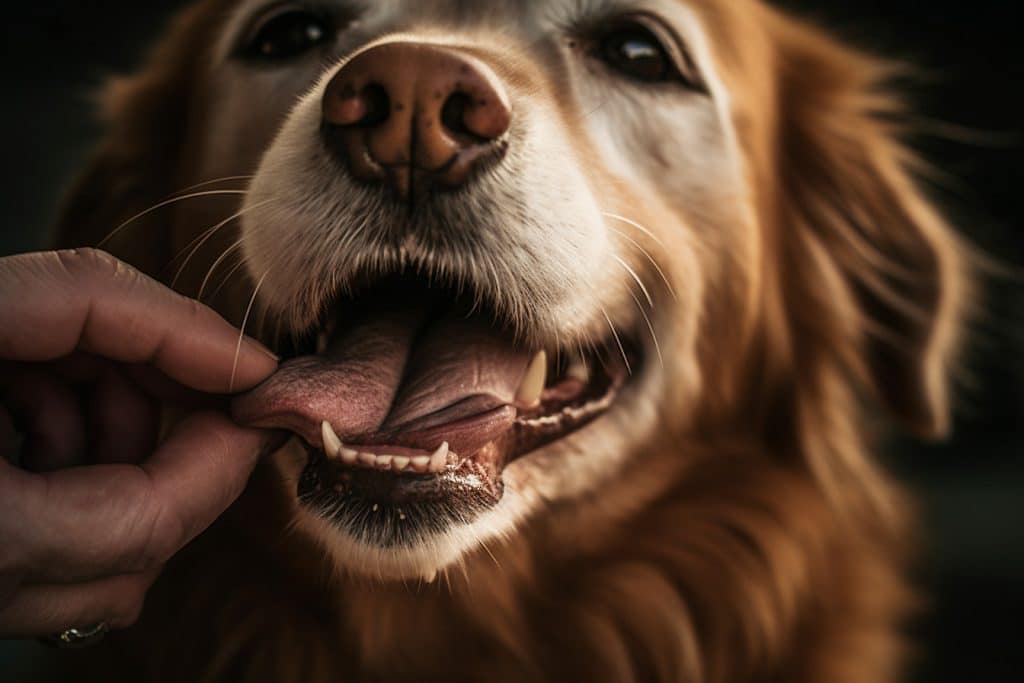
Another common cause of senior dog bad breath is kidney disease. When kidneys are not functioning optimally, waste products build up in the bloodstream and can lead to a fishy or ammonia-like odor in your dog's breath.
If you notice this distinct smell along with other signs like increased thirst and urination or loss of appetite, it's crucial to consult with your veterinarian for proper diagnosis and treatment options.
By addressing these potential health issues early on through regular check-ups and maintaining good oral hygiene practices at home, you can ensure that your senior dog remains comfortable throughout their golden years while minimizing the impact of bad breath-related problems on both you and your pet companion.
Health Issues Related to Bad Breath
As your beloved furry friend grows older, it's crucial to be aware of the health complications that may arise with their unpleasant mouth odor, as it could signal something more serious lurking beneath the surface.
When you notice senior dog bad breath in your pet, don't just brush it off as a minor issue; instead, take action and consult with a veterinary professional who can provide an accurate diagnosis and recommend appropriate treatment options.
It's our responsibility as pet owners to ensure our pets receive the best care possible throughout their lives, especially during their golden years when they are most vulnerable.
Professional Diagnosis and Treatment
It's vital to seek a professional diagnosis and treatment for your aging furry friend, as addressing their oral health concerns can significantly enhance their well being and comfort during their golden years.
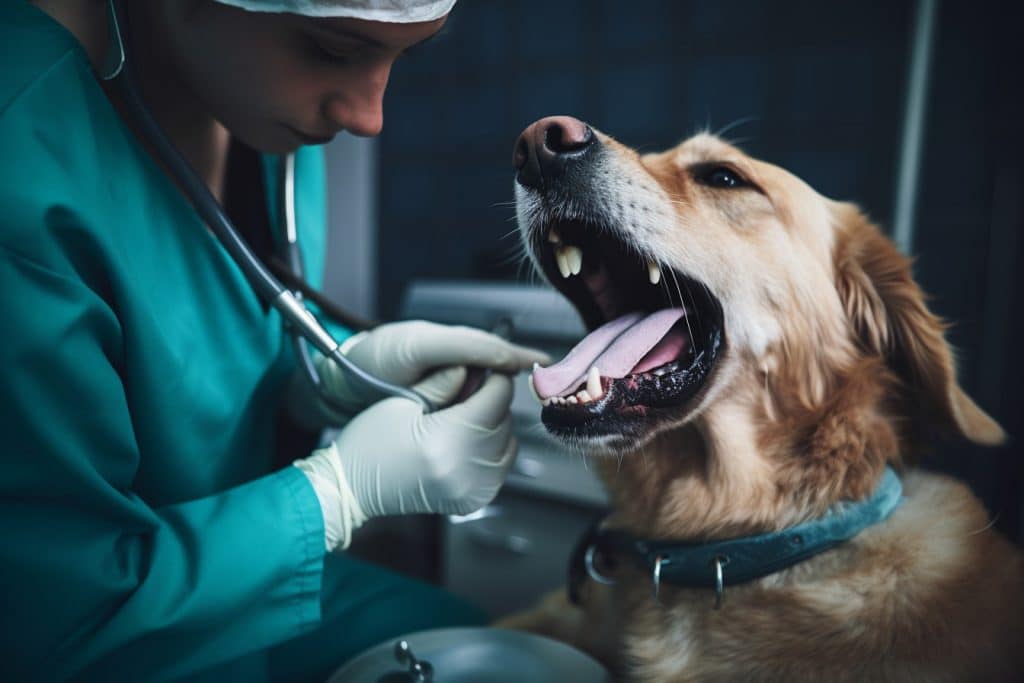
Senior dog bad breath may be indicative of more serious underlying health issues, such as periodontal disease, kidney or liver disease, which require immediate veterinary attention.
A veterinarian will thoroughly examine your pet for signs of oral disease in dogs and recommend the most appropriate course of action. This could include a professional dog teeth cleaning or canine dental cleaning to address plaque build-up and tartar formation that contribute to poor oral health.
In addition to providing professional veterinary care for dog bad breath, it's important to maintain your senior pup's overall wellness by keeping up with regular check-ups and discussing any changes in their behavior or physical condition with your vet.
They'll be able to guide you through the best practices for maintaining good oral hygiene at home, ensuring that your beloved companion stays healthy and happy throughout their twilight years.
Home Remedies and Prevention
Tackling oral health concerns at home can make a world of difference for your aging furry friend.
Let's dive into some effective remedies and preventative measures to keep their mouth fresh and clean between vet visits.
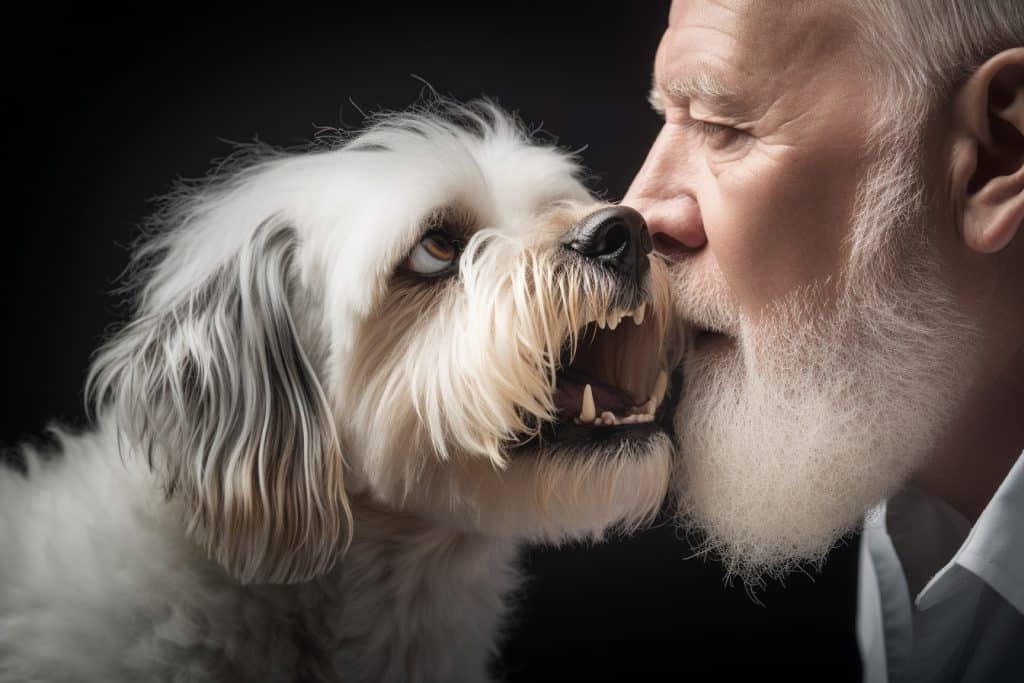
Senior dog bad breath is not only unpleasant but also a sign of potential health issues, so addressing it promptly with home remedies for dog bad breath is essential. Natural dog breath fresheners like coconut oil, apple cider vinegar, or even chlorophyll-rich greens mixed into their food can help combat odours while providing additional health benefits.
We even use apple cider vinegar for paw cleansing as well, just a handy tip….
Dog teeth brushing should be an integral part of your pet care routine. Using a specially designed toothbrush and toothpaste for dogs will ensure safe and efficient cleaning.
In addition to these remedies, preventive care for senior dogs plays a crucial role in maintaining good oral hygiene. Providing dental-friendly chew toys and treats promotes the natural cleaning action in your dog's mouth as they gnaw on them. Opting for high-quality canine dental chews can further aid in scraping away plaque build-up from your pet's teeth.
Scheduling regular check-ups with your veterinarian will also help identify any underlying issues that could contribute to bad breath before they become more severe problems. As we continue to explore ways to improve our senior dogs' oral health, establishing an effective daily oral care routine will set the foundation for success in combating bad breath and ensuring overall well-being.
Oral Care Routine
Establishing a solid oral care routine for your furry friend can make all the difference in keeping their mouth fresh, clean, and free from potential health problems.
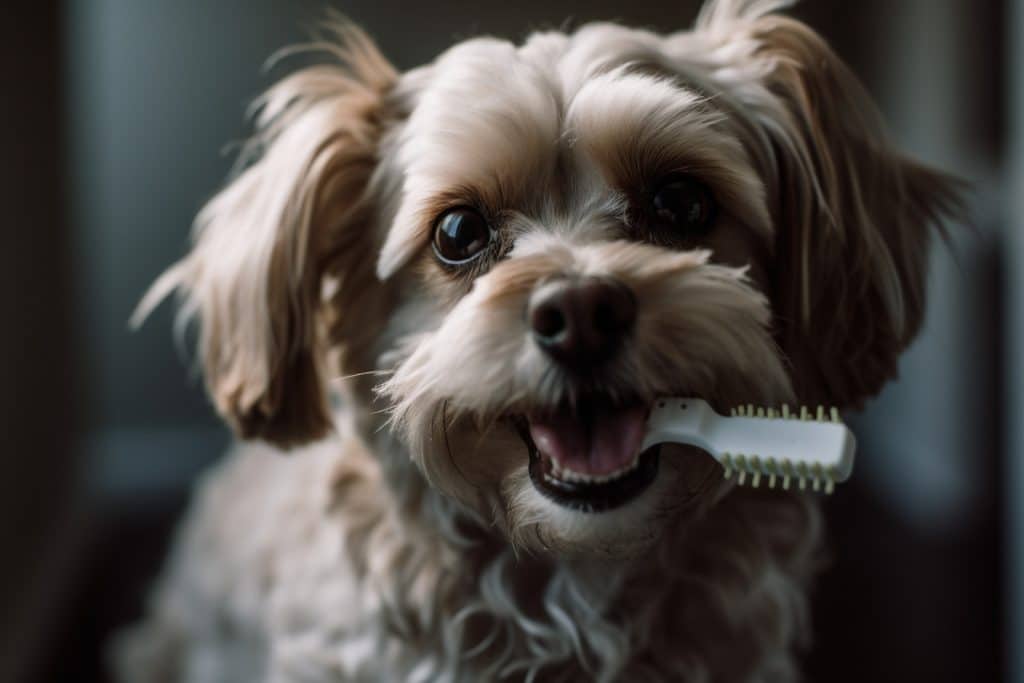
Senior dogs are more prone to dental issues such as periodontal disease, tooth decay, and even mouth diseases that could lead to kidney disease or diabetes. To ensure your senior dog's dental care is top-notch, it's essential to follow some dog dental hygiene tips and use appropriate dog oral health products.
Firstly, brush your senior dog's teeth regularly with a canine toothpaste to help prevent plaque build-up and maintain healthy gums. Invest in a soft-bristle toothbrush designed specifically for dogs or use a finger brush for an easier approach.
In addition to brushing, provide them with dental chews or toys that help clean their teeth while they play.
For optimal senior dog dental care, schedule regular check-ups with your veterinarian who can perform professional cleanings if necessary and monitor any developing issues before they become severe.
By establishing a consistent oral care routine and using quality dog oral health products, you'll not only keep bad breath at bay but also contribute immensely towards ensuring the overall well-being of your beloved companion.
Thoughts
I can't stress enough the importance of keeping an eye on our elderly canine companions' oral health. Their breath might smell like a mixture of roadkill and rotten eggs, but it's a sign that they might be facing some serious health issues.
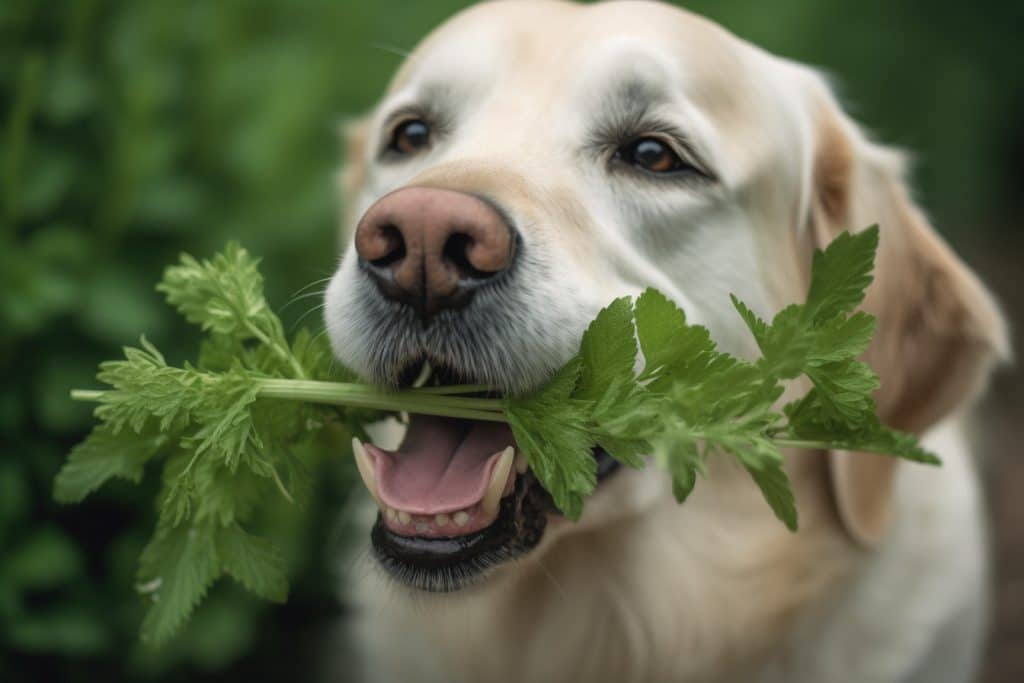
Let's remember to provide them with regular dental care and check-ups, because we all know how much joy our furry friends bring into our lives. Let's give them the gift of fresh breath and a pain-free golden age!
FAQs
How do you treat a senior dog with bad breath?
Treating a senior dog bad breath problem involves a combination of professional veterinary care and home remedies. Initially, a visit to the vet is crucial to rule out any serious oral diseases or other health issues that could be causing the bad breath. They may recommend a professional dental cleaning or other treatments. At home, maintaining your senior dog's oral hygiene is essential. This includes regular teeth brushing, providing dental chew toys, and possibly adding a specially formulated oral health supplement to their diet. Remember, when dealing with ” senior dog bad breath,” a multi-faceted approach is often best.
Is it common for old dogs to have bad breath?
Yes, it is relatively common for older dogs to develop bad breath. This is often due to the build-up of plaque and tartar on their teeth over the years, which can lead to periodontal disease, a common cause of bad breath. However, it's important to note that persistent bad breath in a senior dog could also be a sign of more serious health issues, like kidney disease or diabetes. So, if you notice senior dog bad breath issues, it's worth having them checked by a vet to rule out any underlying conditions.
Why does my 13 year old dog smell bad?
If your 13 year old dog smells bad, it could be due to a variety of factors. One of the most common reasons is poor oral hygiene, resulting in senior dog bad breath. This can be due to periodontal disease, tooth decay, or other oral health issues. However, bad smell can also be a result of skin infections, ear infections, or gastrointestinal problems. It's important to identify the source of the odor, so consult with your vet if you notice persistent bad smells from your dog. They can help determine the cause and recommend appropriate treatments.
